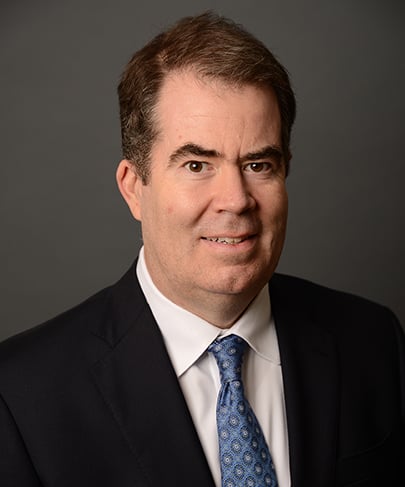美国联邦贸易委员会宣布员工将不受大部分竞业条款的限制 – 禁令的范围是什么?禁令会持续多久?
DOWNLOAD PDF- Beemer, Jeffrey M. Siacon, Aleanna B.
- Industry Alerts
Click “Subscribe Now” to get attorney insights on the latest developments in a range of services and industries.
FTC Declares Employees Free from Most Noncompetes, But How Far Does the Ban Go and Will It Last?
During an Open Commission Meeting on April 23, 2024, the Federal Trade Commission (“FTC”) voted 3-2 in favor of issuing the Noncompete Clause Rule (the “Final Rule”), which, with limited exceptions, makes it unlawful to enter into noncompete agreements with workers[1] on or after the Final Rule’s effective date, which is 120 days after its publication in the Federal Register (“effective date”). The FTC determined that noncompetes are an unfair method of competition and, therefore, violate Section 5 of the Federal Trade Commission Act. Here are the highlights of the Final Rule:
在 2024 年 4 月 23 日举行的公开委员会会议上,联邦贸易委员会以 3 比 2 的投票赞成发布竞业条款规则(以下简称 “《最终规则》”)。《最终规则》规定,除有限的例外情况外, 在《最终规则》生效日期(即在《联邦纪事》公布后 120 天后)依法不得与员工签订竞业禁止协议 (请见脚注1)。 联邦贸易委员会认定竞业禁止是一种不公平的竞争方式,因此违反了《联邦贸易委员会法》第 5 条。以下是我们总结的《最终规则》的相关要点:
- Existing noncompetes that were entered into before the effective date remain in force for senior executives, which the Final Rule defines as a worker in a “policy-making position” with a total annual compensation of at least $151,164 in the preceding year or total compensation of $151,164 when annualized so long as the worker was only employed during part of the prior year. The Final Rule defines a policy-making position to include a business entity’s president, CEO or the equivalent, another officer of a business entity (vice president, secretary, treasurer or principal financial officer, comptroller or principal accounting officer, or any other natural person routinely performing corresponding functions) who has policy-making authority, or any other natural person who is not an officer who has policy-making authority for the business similar to an officer with policy-making authority.
在上述生效日期之前签订的现有竞业禁止协议对高级管理人员仍然有效。《最终规则》将高级管理人员定义为处于“政策制定/决策” 职位的员工,并且此类员工上一年的年度总薪酬至少为 151,164 美元或如果员工仅在上一年的部分时间受雇,其年薪折算将为 151,164 美元。《最终规则》定义了此类决策职位包括企业的总裁、首席执行官或同等职位,企业中拥有决策权的其他高级管理人员(副总裁、秘书、财务主管或首席财务官、主计长或首席会计官或任何其他例行履行相应职能的自然人),以及虽然不担任高级管理人员但具有与有决策权的官员类似的业务决策权的其他自然人。
- After the effective date, existing noncompetes for workers who are not senior executives are unenforceable. Employers are prohibited from entering into or enforcing new noncompetes with all workers.
生效日期后,现有的针对非高级管理人员的员工的竞业禁止协议将无法执行。在生效日期后,雇主禁止与任何员工签订或强制执行新的竞业禁止协议。
- Employers must provide workers who are not senior executives “clear and conspicuous notice by the effective date that the worker’s noncompete clause will not be, and cannot legally be, enforced against the worker.” Section 910.2(b)(2) & (4) of the Final Rule provides the form of notice and model language that satisfies the notice requirement to the worker. The FTC eliminated a provision in the proposed rule issued in January 2023, which would have formally required employers to rescind existing noncompete agreements.
雇主必须“在生效日期之前向非高级管理人员的员工发出明确的通知,表明该员工的竞业禁止条款依法将不会且不能执行”。《最终规则》第 910.2(b)(2) 和 (4) 条规定了此类通知的形式和示范语言。 联邦贸易委员会取消了其在2023 年 1 月发布的拟议规则中要求雇主正式废除现有的竞业禁止协议的规定。
Section 910.3 of the Final Rule provides the following exceptions:
《最终规则》第 910.3 条规定了以下例外情况:
- The Final Rule does not apply to noncompete clauses entered into by a person under a bona fide sale of a business entity, of the person’s ownership interest in a business entity, or of all or substantially all of a business entity’s operating assets.
《最终规则》不适用于个人在出售商业实体、出售在商业实体中的所有权权益或出售商业实体的全部或大部分运营资产的善意交易中签订的竞业禁止条款。
- The Final Rule does not apply where a cause of action related to a noncompete clause accrued before the effective date.
如果与竞业禁止条款相关的诉讼事由在生效日期之前产生,则《最终规则》不适用。
- Where a good-faith basis exists to believe that the Final Rule is inapplicable, it is “not an unfair method of competition to enforce or attempt to enforce a noncompete clause or make representations about a noncompete clause.”
如果基于善意基础认为《最终规则》不适用,则“执行或试图执行竞业禁止条款或就非竞争条款做出陈述并非不公平的竞争方法”。
Additionally, under § 910.4(a), the Final Rule will not limit or affect the enforcement of State laws applicable to noncompete clauses, including, but not limited to, state antitrust and consumer protection laws, so long as such State laws do not conflict with the Final Rule. Nevertheless, the Final Rule will preempt State laws that conflict with its language.
此外,根据第 910.4(a) 条,《最终规则》不会限制或影响适用于竞业禁止条款的州法律的执行,包括但不限于所在州反垄断法和消费者保护法,只要这些州法律与《最终规则》不冲突。 尽管如此,《最终规则》将优先于与其相冲突的州法律。
The Final Rule presents broad implications for employees and employers, but court challenges are inevitable. For instance, the U.S. Chamber of Commerce submitted its strong opposition to the FTC’s proposed rule and, in an April 17, 2023 letter to the FTC, called the “categorical ban” representative of “arbitrary and capricious decision-making.” On April 24, 2024, the U.S. Chamber of Commerce and other business groups filed a lawsuit against the FTC in the U.S. District Court for the Eastern District of Texas in which the plaintiffs seek an order permanently enjoining the FTC from enforcing the Final Rule.
《最终规则》对雇员和雇主都具有广泛的影响,但同时其在法庭也面临上不可避免的挑战。例如,美国商会曾对联邦贸易委员会的拟议规则提出了强烈反对。美国商会在2023年4月17日致联邦贸易委员会的信中称 称这种 “分类禁令” 代表了委员会的 “武断和任意决策。” 2024 年 4 月 24 日,美国商会和其他商业团体向德克萨斯州东区对美国联邦贸易委员会提起诉讼,寻求法院永久禁止联邦贸易委员会执行《最终规则》。
Dickinson Wright will continue to monitor all developments, including pending litigation, that may affect the implementation of the FTC’s Final Rule. In the meantime, companies should assess how they can protect their trade secrets and confidential information without the ability to enforce noncompete agreements. Dickinson Wright attorneys can assist in determining how the Final Rule and other developments will affect existing and future employment agreements.
迪克森律所将继续关注可能影响联邦贸易委员会实施《最终规则》的进展,包括上述未决诉讼。与此同时,公司应评估如何在无法执行竞业禁止协议的情况下保护其商业秘密和机密信息。 迪克森律师可以协助确定《最终规则》和其他发展将如何影响公司现有和未来的就业协议。
[1] The final rule affects employers within the FTC’s jurisdiction and applies to employment agreements with a wide range of paid or unpaid workers, including employees, independent contractors, and interns. Although the FTC does not have jurisdiction over most nonprofit organizations, such as some hospitals and healthcare systems, it does have jurisdiction over nonprofits that actually operate for profit or the profit of their for-profit members, for example, where nonprofit hospitals have relationships with for-profit physician practices.
脚注1:《最终规则》将影响联邦贸易委员会管辖范围内的雇主,并适用于与各种带薪或无薪员工(包括雇员、独立承包商和实习生)签订的雇佣协议。 尽管联邦贸易委员会对大多数非营利组织(例如某些医院和医疗保健系统)没有管辖权,但其实际上对以营利为目的或其营利性成员的利润运营的非营利组织拥有管辖权,例如,与营利性执业医生有业务往来的非盈利医院。
Related Practices
Recent Insights
- Industry Alerts FTCはほとんどの競業避止義務から従業員を解放したが、禁止はどこまで続くのでしょうか?
- Industry Alerts USTR Releases Section 301 Tariff Specifics and Electric Vehicles Will Be Impacted | 美国贸易办公室发布301条款关税细节;电动汽车将受到影响
- Industry Alerts USTR Finalizes Modifications on Section 301 Tariffs: Starting September 27, 2024 | 美国贸易代表办公室发布对华301关税最终修改措施:一些关税上调将在2024年9月27日起生效
- March 27, 2025 Industry Alerts FinCEN Narrows CTA Reporting Requirements
- March 14, 2025 Events Leading the Way in Space Law: Dickinson Wright at Space Beach Law Lab 2025
- March 13, 2025 In the News Five Dickinson Wright Lawyers Listed in the 2025 Canadian Legal Lexpert® Directory
- February 20, 2025 Industry Alerts Texas Court Recognizes Supreme Court Ruling, Reinstates BOI Filing Requirement
- January 28, 2025 Industry Alerts Supreme Court Stays Fifth Circuit CTA Injunction, But Clarity Remains Elusive
- January 21, 2025 In the News Six Dickinson Wright Attorneys Named to 2025 Illinois Super Lawyers, Three Named Rising Stars


